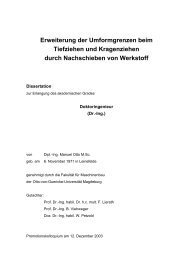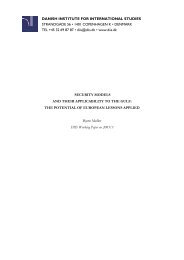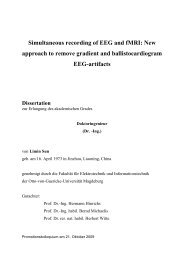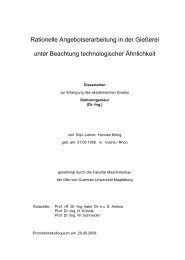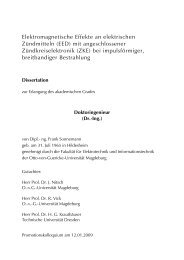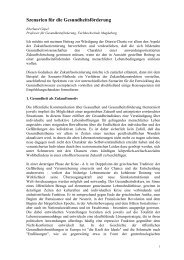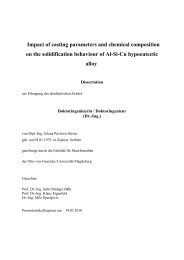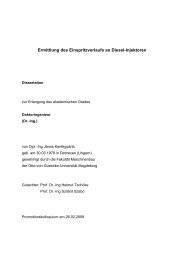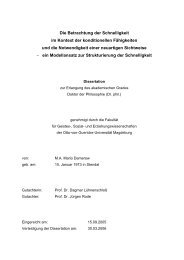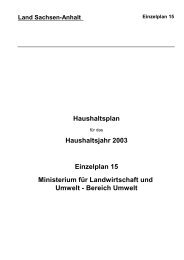Chapter 1
Chapter 1
Chapter 1
Create successful ePaper yourself
Turn your PDF publications into a flip-book with our unique Google optimized e-Paper software.
taken in Tunisia (merchandise transport, some services, needs to be opened up to local private and foreign<br />
tourism), the outcomes have generally been very positive. It investors that can bring state-of-the-art technology, comis<br />
difficult to show precise efficiency measurement changes petitive prices and reliable services enabling faster and<br />
for Tunisia, because privatization has been limited, but cheaper communications and transport links with the rest<br />
extensive work has been done in other countries which of the world.<br />
strongly supports positive results. Widespread private own- * Commencing the divestiture process of the public sector<br />
ership combined with property laws, clear land titles, trans- banks (which account for 70 percent of the banking sector's<br />
parent regulations, and a well-functioning financial system assets) will speed up the restructuring of these banks and<br />
provide the building blocks that make market-oriented help ensure fundamental changes in the way the banks and<br />
economies function. enterprises conduct business. Private ownership will<br />
A key finding from studying structural reform and improve the banking sector's efficiency-provided core prigrowth<br />
(chapter 4) is that economic growth is maximized vate shareholders are found that can appoint key board<br />
when the incentives to invest in physical and human capi- members and fill senior management positions to run the<br />
tal as well as in technological innovation are determined by banks after divestiture.<br />
free market forces. Governments assist this process by pro- * Further public sector disengagement in agriculture is<br />
viding macroeconomic and political stability, a clear regu- needed, particularly in the trade and marketing of, for examlatory<br />
environment, and public/social infrastructure. In ple, meat, milk, sugar, wheat, and olive oil. The size of the<br />
Tunisia, regulatory reforms, including accreditation and state's operations in these activities, combined with its storsupervisory<br />
policies, can speed up the entrance of private age facilities (and some continued price controls), make<br />
investors in many different service activities that have been effective private competition difficult. With the expansion<br />
traditionally dominated by the public sector (for example, of commercial agriculture, many services currently provided<br />
higher education, vocational training, medical services, by the state (extension, animal health, and research) take on<br />
agricultural extension, and veterinary services). Shifts in a private good character for which private extension and<br />
public/private financing policies need to be introduced so cost recovery are more suitable. The state, as a major<br />
that limited public funds are used to finance priority areas landowner, should also expand the program of leasing state<br />
with high social and economic returns, for example, agricultural lands and rethink the costs and benefits of sellincreasing<br />
completion rates of nine years of basic education ing state land to the private sector (in conjunction with agriand<br />
further improving preventive health care. Private<br />
financing needs to increase in areas where private benefits<br />
cultural zoning regulations).<br />
are high, such as medical expenses (with public/private<br />
insurance policies) and tertiary education (with loans and<br />
Growth and environmental sustainability<br />
scholarships for the poor). Tunisia has already made good progress in incorporating<br />
environmental concerns in its development plans and<br />
Privatization and deregulation growth objectives. The Government is putting in place several<br />
policies, including pricing policies, that incorporate the<br />
Refocusing the role of the state through an acceleration of economic value of resources, minimize haphazard coastal<br />
the restructuring and privatization of public enterprises zone planning, and take into account the fiscal and finanaccompanied<br />
by deregulation measures will have a critical cial consequences of erosion, water scarcity, and pollution.<br />
impact on efforts to upgrade the productive and allocative The government needs to take the lead in integrating<br />
efficiency of the Tunisian economy. Undertaking these mea- growth objectives with sound environmental management<br />
sures in three strategic areas of the economy (transport and by balancing the trade-offs between different activities<br />
telecommunications services, banking, and agriculture) is through appropriate pricing policies, using incentives and<br />
an integral and critical part of any strategy to enhance the penalties to reduce pollution, decentralizing monitoring<br />
country's competitiveness. and enforcement activities, and promoting the economic<br />
* The public sector's traditional control of telecommuni- analysis of the costs and benefits (including externalities)<br />
cations, maritime and air transport, and port services of natural resource use-particularly of land and water.<br />
CHALLENGES OF GLOBEALZAnON 53




